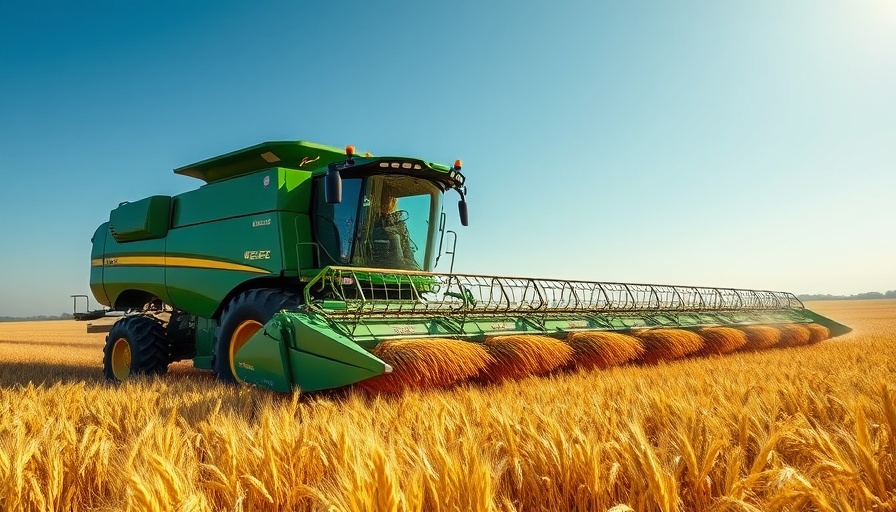
Understanding the Scope of Organic Grain Fraud
In recent years, the organic food industry has faced growing alarm over the prevalence of organic grain fraud. Farmers, businesses, and consumers are at risk in an environment where labels are misused and misleading. As the demand for organic products surges, so does the potential for dishonest practices. Investigations have revealed a disheartening reality: many grains marketed as 'organic' might not meet the required standards. This has raised serious questions about the integrity and authenticity of our food supply.
Why Organic Matters: A Closer Look
For health-conscious individuals, the term organic is synonymous with high-quality nutrition, environmental sustainability, and ethical farming practices. When consumers choose organic grains, they're often seeking an assurance against harmful pesticides, antibiotics, and preservatives that are prevalent in conventionally produced foods. However, rampant fraud can undermine these health benefits, leaving customers in a state of uncertainty. The true value of organic foods extends beyond personal health; it also entails a commitment to sustainable environmental practices.
The Financial Stakes: Impact on Farmers and Consumers
Fraud not only jeopardizes consumer trust but poses significant economic consequences for legitimate organic farmers. According to reports, losses from organic grain fraud can amount to millions of dollars annually. Farmers who invest time, effort, and resources into attaining organic certification are faced with an uneven playing field when competing with fraudulently labeled products. For the average consumer, this can mean higher prices for organic products, making healthy choices less accessible.
Preventative Measures: How to Protect Yourself
So how can consumers safeguard against organic grain fraud? Transparency is key—always look for certification seals from reputable organizations. Familiarize yourself with brands that have proven integrity by reviewing customer feedback and seeking out local sources where possible. Buying directly from farmers' markets not only supports local economies but also allows you to ask questions and verify practices.
Learning from the Past: Historical Context of Organic Fraud
The organic movement gained momentum in the late 20th century as more consumers began to prioritize their health and recognize the benefits of organic agriculture. However, alongside this growth came the need for regulations and certification processes to ensure authenticity. The USDA's National Organic Program was established to curb cheating in the industry. Still, the difficulty in tracking origins of grains—especially in a global marketplace—leaves loopholes for fraudsters.
The Future of Organic: A Call for Innovations
Looking ahead, advancements in technology and blockchain solutions can play a vital role in combating organic fraud. These innovations can help create traceable supply chains that provide consumers with verified information about the products they're purchasing. As businesses embrace new technologies, it cultivates a culture of accountability within the organic food market, ultimately benefiting consumers and supporting genuine farmers.
Community Voices: Real Impact and Testimonials
The voices of individuals impacted by organic grain fraud are crucial in raising awareness about the issue. Testimonials from farmers who have lost income due to fraudulent competition give a human face to this problem. Consumers recount experiences of purchasing what they believed were organic grains only to discover the truth later. By sharing these stories, we can foster a community that reinforces the importance of ethical practices in the food industry.
Taking Action: Your Role in Advocating for Transparency
The organic grain fraud crisis calls for consumer awareness and collaborative action. By staying informed and supporting ethical brands, consumers can demand higher standards and accountability. Engaging with local organizations dedicated to promoting ethical agriculture creates a ripple effect that not only fosters improvement in food sourcing but also advocates for policy changes that protect consumer interests.
In conclusion, protecting yourself against organic grain fraud requires vigilance, education, and community engagement. As the organic movement continues to evolve, it’s vital to stay informed about the standards of the products we support and advocate for transparency in the food supply chain.
 Add Row
Add Row  Add
Add 



Write A Comment